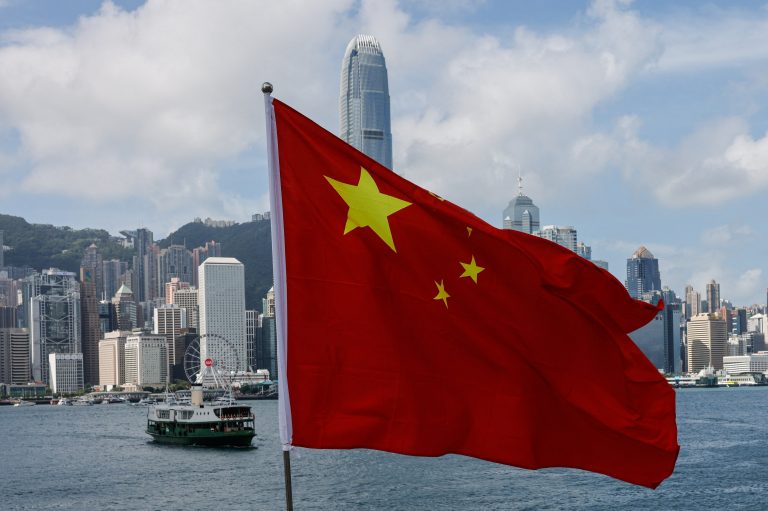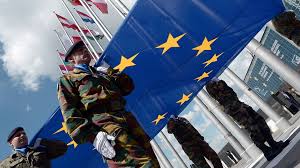
Donald Trump says the US needs Greenland and Canada for ‘national security’.
In the lead-up to his second term as President of the United States, Donald Trump’s rhetoric about territorial ambitions has reignited controversy and alarm. His statements regarding the Panama Canal, Greenland, and even Canada have raised questions about the seriousness of these assertions and their potential impact on global geopolitics. While such comments may seem far-fetched to some, the implications warrant deeper analysis, particularly when viewed against the backdrop of international law, diplomatic relations, and historical precedent.
Trump’s Bold Claims: Expansionism Revisited
Donald Trump’s remarks have struck a chord globally, particularly his assertions about rebranding the Gulf of Mexico as the “Gulf of America”, reclaiming the Panama Canal, and acquiring Greenland. In his usual hyperbolic style, Trump described the Gulf of America as “a beautiful name” and suggested that it reflected American dominance over the region. While largely symbolic, such renaming proposals carry undertones of expansionist ideology.
Trump’s interest in Greenland is not new. During his first term, he infamously suggested purchasing the autonomous Danish territory, sparking ridicule and rebukes from Danish and Greenlandic leaders. At the time, his comments were dismissed as whimsical. However, his renewed interest—marked by Donald Trump Jr.’s recent visit to Greenland’s capital, Nuuk—has fuelled speculation that his intentions may now carry more weight.
The Panama Canal, a crucial maritime artery connecting the Atlantic and Pacific Oceans, has also re-entered Trump’s sights. The canal’s sovereignty has been firmly Panamanian since 1999, following decades of US control. Yet Trump’s rhetoric hints at a desire to reclaim strategic assets that he perceives as vital to American influence.
International Reactions: Alarm and Rejection
Global leaders have been quick to respond. Canada’s Prime Minister Justin Trudeau declared there is “not a snowball’s chance in hell” of Canada becoming part of the United States. Similarly, Panama’s leadership firmly reiterated that the canal’s sovereignty is “not negotiable.” Denmark’s Prime Minister, Mette Frederiksen, maintained that Greenland’s future lies in the hands of its people, underscoring the importance of respecting sovereignty and self-determination.
German Chancellor Olaf Scholz expressed unease, referencing the Helsinki Accords of the Cold War era, which enshrine the principle that borders should not be changed by force. Scholz’s remarks also tied Trump’s statements to broader concerns about undermining the West’s stance against Russia’s actions in Ukraine, highlighting the precariousness of violating international norms.
Historical and Strategic Context
Trump’s rhetoric about territorial acquisition taps into broader historical and strategic dynamics. The United States’ interest in Greenland stems from its geostrategic location in the Arctic, where melting ice is unlocking new shipping routes and exposing vast reserves of natural resources. Greenland, with its untapped rare earth minerals, holds growing importance in global supply chains.
Similarly, the Panama Canal remains a linchpin of global trade, with nearly 14,000 ships transiting annually. While the canal was constructed and controlled by the United States for much of the 20th century, its handover to Panama was the result of decades of negotiations and represents a hard-won symbol of Panamanian sovereignty.
Trump’s rhetoric also mirrors expansionist attitudes reminiscent of colonial-era thinking. Comparisons have been drawn between his remarks and Russian propaganda regarding Ukraine, where territorial claims are framed as historical or strategic necessities.
Domestic and International Implications
Domestically, Trump’s rhetoric could serve to energise his political base, tapping into nationalist sentiments. His calls for reasserting American dominance align with his “America First” doctrine, which prioritises domestic interests and challenges globalist approaches.
However, such rhetoric risks alienating allies. The European Union (EU) has been vocal in its criticism, with leaders warning against any undermining of sovereignty. French Foreign Minister Jean-Noël Barrot described Trump’s approach as “imperialism”, while others noted that unilateral action against sovereign nations would be incompatible with Western democratic values.
The prospect of military action, even as a hypothetical, has drawn sharp rebukes. Benjamin Tallis, a European security expert, emphasised that such rhetoric challenges the post-World War II international order, which prioritises diplomacy and multilateral cooperation.
Strategic Challenges for the United States and Allies
For the United States, pursuing Trump’s ambitions would likely strain resources and diplomatic relations. The Arctic, for example, is already a zone of heightened competition between the US, Russia, and China. While enhanced cooperation with allies like Denmark and Canada could yield mutual benefits, Trump’s approach risks alienating these partners.
Europe faces its challenges. Trump’s rhetoric highlights the EU’s dependence on the US for security, particularly through NATO. Calls for increased European defence spending have intensified, with leaders urging member states to build autonomous capabilities to counter potential American unpredictability.
Panama, too, finds itself in a delicate position. While its control of the canal is internationally recognised, the spectre of American intervention—military or economic—could destabilise the region.
Is Trump Serious?
The question of whether Trump will act on these ambitions remains speculative. His first term was marked by similar bold claims that often did not translate into policy. However, his renewed interest, coupled with a lack of clarity about his intentions, creates uncertainty.
Experts caution against overreaction while urging vigilance. Christine Berzina, an Arctic security analyst, noted that Trump’s rhetoric conflicts with long-standing US values of respecting sovereignty and self-determination. While the Arctic and Panama hold strategic importance, pursuing territorial acquisitions through coercion or force would mark a radical departure from American norms.
Conclusion: A Test for Global Norms
Trump’s statements about Greenland and the Panama Canal reflect a broader challenge to the international order. While the feasibility of such ambitions is questionable, their implications for global stability are significant. They test the resilience of international norms, the strength of alliances, and the capacity for collective action in the face of unilateralism.
As Trump prepares to re-enter the White House, the world watches closely. Whether his words are bluster or a precursor to action, they serve as a reminder of the fragility of the principles underpinning global peace and cooperation. For nations like Panama, Denmark, and Canada, the challenge lies in reaffirming their sovereignty while navigating an increasingly unpredictable geopolitical landscape. For the United States, the challenge is balancing national interests with its role as a global leader committed to the rule of law.
Aric Jabari is a Fellow, and the Editorial Director at the Sixteenth Council.



